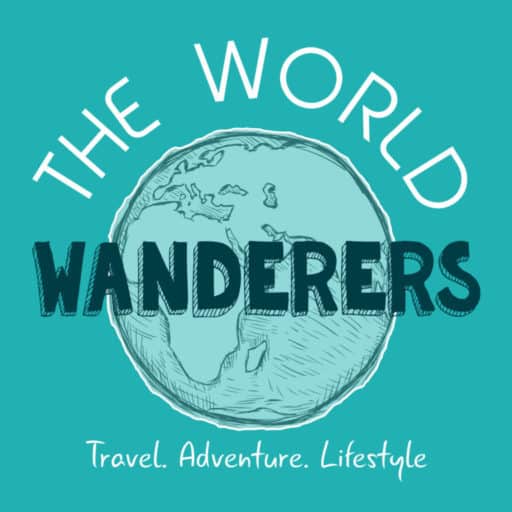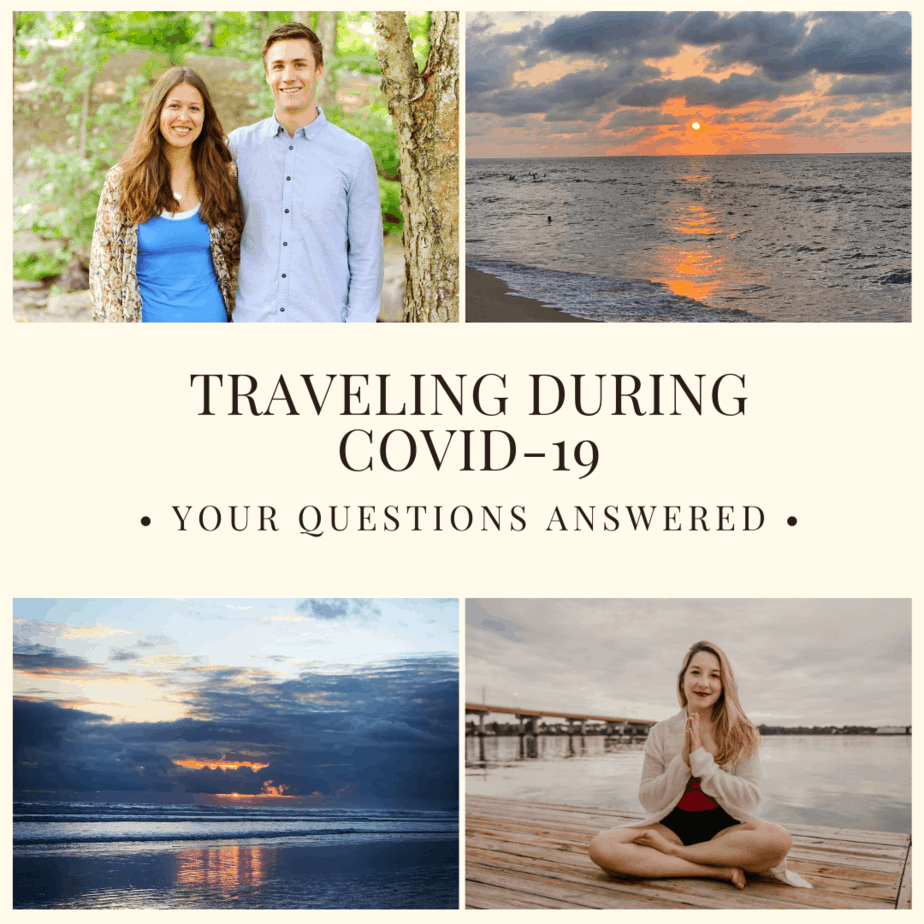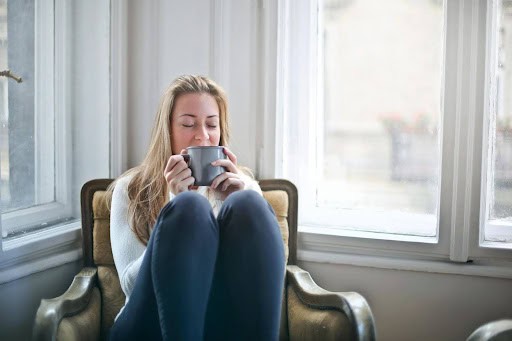“Travel” has become a bit of a contentious word these days. While some people don’t feel that it’s possible for them to travel at all, others know that it’s possible, but don’t feel like it’s responsible to choose to leave their home country right now. Then there are the career travelers and digital nomads, many of which have hit the road again!
As travelers who debated long and hard about whether or not we should hit the road again, we wanted to share what our experiences have been like planning our travels, purchasing insurance, taking an international flight for the first time in months, and of course, what it’s like where we are! We collaborated with Brytta from Xanadu Yoga who is currently in Costa Rica to answer some of the most common questions we get asked.
Here we go:

What was required to leave your home country?
Brytta: I needed a PCR (nose swab) test. I had to have a negative result 72 hours prior to landing in Costa Rica. Airlines actually counted down the hours to make sure it was accurate even during layovers. I want to make it clear that each state has different requirements. I live in the North East so those states (Pennsylvania, New York, Massachusetts, Vermont, Maine and New Hampshire) require a negative test and your contact information when crossing state lines. If you don’t have a negative test and you get pulled over while driving or stopped at customs they can fine you up to $500.
Amanda: Mexico doesn’t have any entry requirements and Canada doesn’t have any exit requirements so we didn’t need to do anything extra to travel down to Mexico. The airports in Canada do temperature checks at security and ask you if you have any symptoms of COVID-19 or have been in contact with anyone who has tested positive. Assuming that you have none of these (like us), you are good to go! If you do have symptoms or have been in contact with a positive case, you will not be allowed to board a flight to leave Canada.
What was required to enter Costa Rica as an American?
Brytta: I needed $50,000 coverage in travel insurance which is equal to $60 for 90 days. I needed proof of a long-term address. I was staying at an Airbnb for a month so I just shared that with airport customs. Lastly, I needed a mask to enter the airport and get on a plane.

What was required to enter Mexico as a Canadian?
Amanda: Mexico doesn’t have any requirements for Canadians right now. In fact, Mexico doesn’t have any restrictions or requirements specific to COVID-19 for any country! It is one of the easiest countries to travel to right now.
As you can see, things are different from country to country and also depending on your citizenship. It’s more important than ever to do extra research about where you want to go to make sure that you are fully prepared for what is needed before you travel abroad!
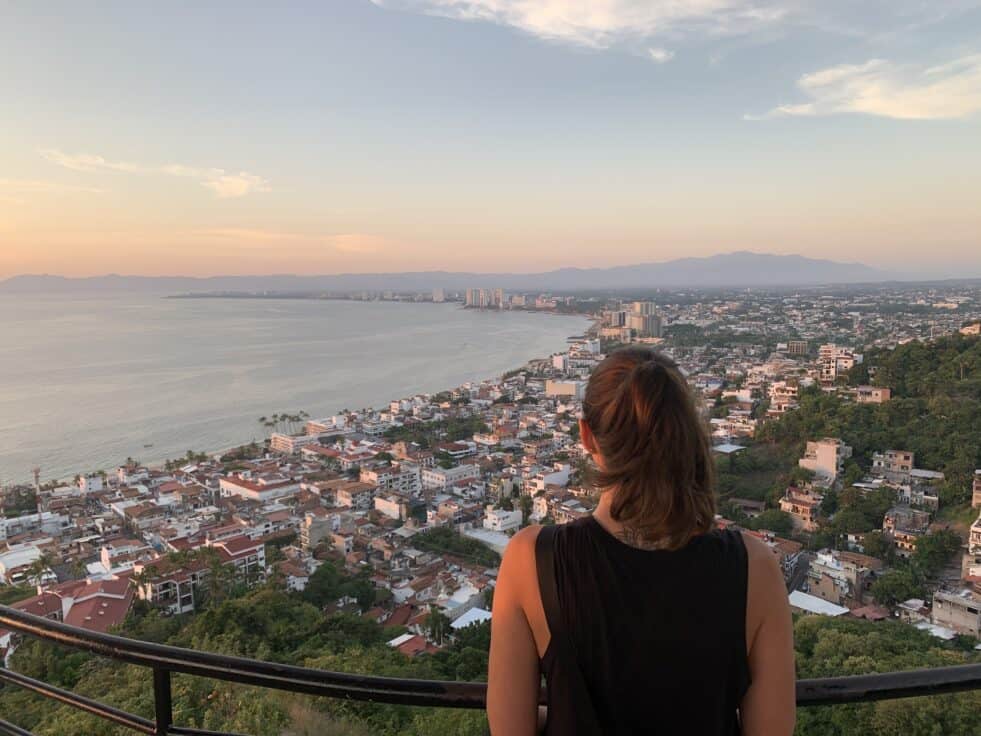
What is travel actually like in the time of COVID-19?
Brytta: It’s pretty chill. I think there’s some stress in the air because the world is on edge so practicing compassion while traveling is great, but nothing has really changed. In the US they didn’t let me use my TSA Pre-Check so get to the airport early, but other than that nothing has changed.
Amanda: Similar to what Brytta said, my travel experience from Canada to Mexico was very relaxed. We were required to wear masks during the entire process, we had our temperature checked before boarding our flights and before entering Mexico, and there was distancing up until the point of actually being on the plane. People were very considerate of each other on our plane and I felt like there was a mutual understanding that we all want to travel as safely as possible.

Was there anything during your travels that made you feel unsafe or uncomfortable?
Brytta: No, honestly. The airline I flew with didn’t have social distancing guidelines so everyone sat next to each other and they still served food. That wasn’t my favorite so the next time I fly I will just go with another airline.
Amanda: We flew WestJet from Calgary to Puerto Vallarta and everything felt very safe. Like I’ve mentioned, we had our temperature checked and answered a series of questions regarding COVID-19 symptoms and contact with a positive case before boarding our plane. We wore masks the entire time and this was mandatory for all passengers. All the seats were full, so distancing wasn’t possible on the plane, but WestJet has put in a new filtration system on their planes so we felt comfortable. The food and beverage service was suspended and everyone received a bottle of water and some cookies. If you were eating, you were allowed to take your mask off briefly. We thought WestJet did a great job keeping us safe during our travels!
Every airline is doing things slightly differently so we definitely recommend that you check the policies of the airline you are planning to book with to make sure that you feel safe and comfortable on your travels!

What are things like in Costa Rica?
Brytta: Costa Rica is a dream! There are definitely fewer tourists and everything is more affordable. The tourist towns are busy on the weekends and the locals are vacationing more. The one thing that I’m not loving is that there seems to be more selfishness and less community happening. I think that’s a direct result of being put in a lockdown. We have to do this pandemic smarter, especially for travelers because travel is community. I however am absolutely loving (and taking advantage of) meeting the locals and learning the language. It feels like a gift to travel through Costa Rica with the locals. It’s genuinely seeing a country for what it is versus what tourism wants us to see and buy.
What are things like in Mexico?
Amanda: Mexico has been great! The vibe here is much more relaxed than it was in Canada and that has been very refreshing. Since we are on the coast, almost everything we do is outside and most restaurants that we are eating at have patios or some form of open area to sit at.
Most things are open here with added precautions, like mandatory masks, hand sanitizing, and temperature checks. Physical distancing is encouraged, but it’s happening less here than it was in Canada. Because we are outside most of the time and the weather is great, this doesn’t bother us too much!
There are still a lot of tourists here in Puerto Vallarta, but it feels like there are more Mexican tourists than international tourists. It’s been nice to be here while it’s less busy and to see a lot of Mexican tourists traveling domestically.
Everything is governed state by state in Mexico so regulations can be different in different places. Puerto Vallarta is in the state of Jalisco so follows the rules set by the governor here. It’s important to do your research and due diligence about the regulations in other parts of Mexico if you want to travel here so you know what to expect.
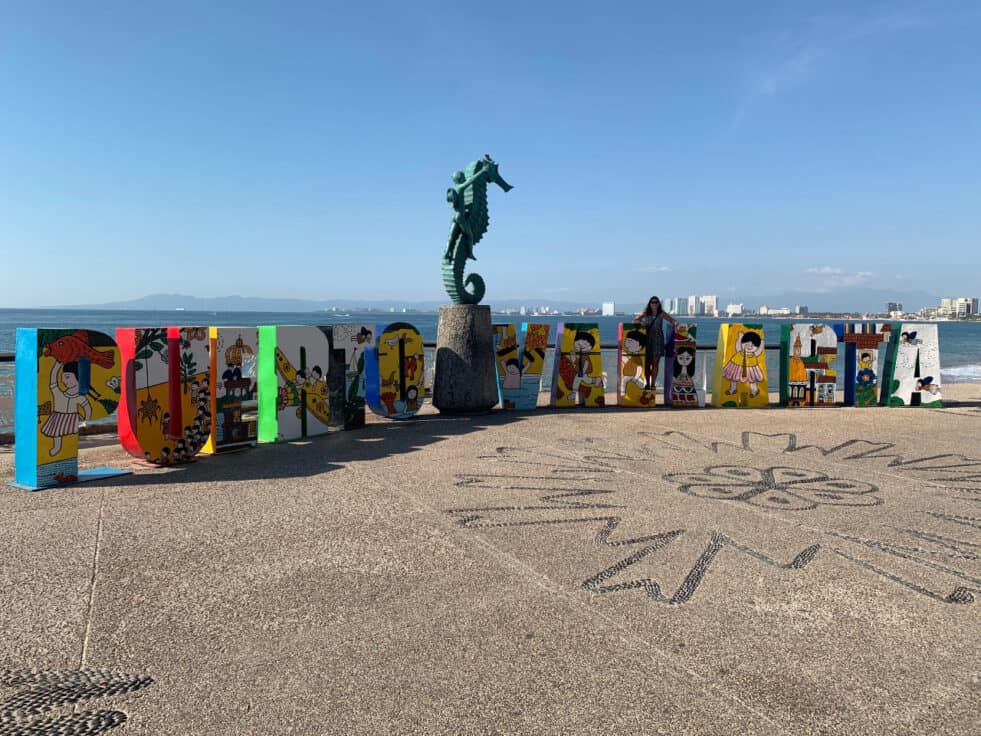
What travel insurance should I get that covers me for COVID and what is the normal rate for this?
Brytta: I use Travelex. It’s $60 for 90 days. I recommend it for US citizens who travel because it has always covered my medical emergencies and airline delays and issues. Plus it’s affordable!
Amanda: We usually use WorldNomads travel insurance but unfortunately they are not covering Canadians right now. They are still covering Americans though and this is our go-to option in normal times! We did a ton of research to find travel insurance that covers COVID-19 as well as normal medical and we ended up choosing Seven Corners. The cost is depending on your age and the country you’re traveling to, as well as the type of coverage you’d like.
Should I be scared to start traveling again?
Brytta: There is no reason to be scared of travel. What I recommend is traveling to places that are more outdoors or less on top of each other. Costa Rica is full of nature and fresh air versus New York City or Lisbon where people literally live on top of each other. There is no stress about the pandemic in Costa Rica and at the end of the day, this is about self and community care. My self-care practice is next level when I travel because my health is my priority. If you make your health a priority then you’re taking care of your community by taking care of yourself. When I say make it a priority, I mean make it a routine. When I wake up in the morning the first thing I do is wash my face, brush my teeth, and meditate. I take daily supplements, drink tons of water, and eat healthy for every meal. I practice yoga and go on walks daily. Self-care is key and maybe in some way, this is why the pandemic happened. So that we can all learn how to take care of ourselves on a deeper level.
Amanda: I don’t think there is any more reason to be scared of traveling right now than during normal times. It is always important to travel safely, to respect other people, and to take care of yourself and your health. The mainstream media has done a great job at making the world seem like a scary place and so we do our best to find someone on the ground in the place we are interested in that can tell us what it’s actually like there. My experience has always been that most places are less scary than they are made out to be on the news. I truly believe that there are ways for us travelers to get back on the road while keeping ourselves and the people around us safe and healthy!
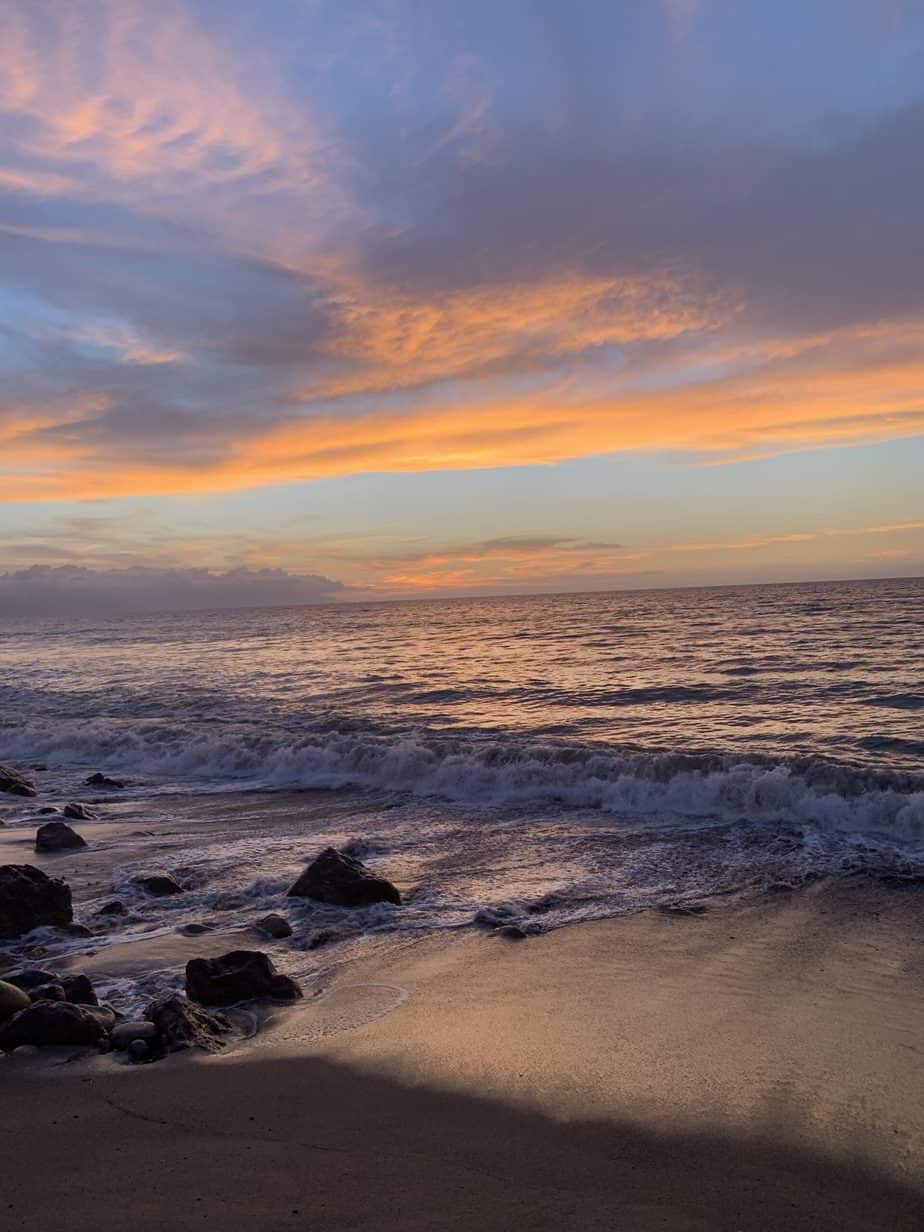
What regulations do Costa Rica & Mexico have in place?
Brytta: The Costa Rica borders are open, COVID tests are NOT required and all you need is $50,000 in travel insurance that covers medical emergencies and housing. If you live in Costa Rica as an expat, there are driving regulations in place. Basically, only certain cars can drive on certain days. In San Jose (the main city) you have to wear a mask and have your temperature taken to go into stores and some restaurants. Public transportation (buses + taxes) requires masks. Any indoor place requires that you use hand sanitizer or wash your hands at a hand washing station.
Amanda: Mexico does not have any additional restrictions in place for entering the country right now. Everything is governed state by state so the restrictions differ slightly in each place, but most states have put in mandatory mask rules, hand sanitizing, and temperature checks when you enter indoor spaces, like restaurants and bars. Many of the states have curfews for liquor sales. Mexico uses a “stoplight” system based on how many active cases, hospitalizations, and deaths there are in the state, and the color that the state is in dictates the regulations that are put in place. If you want to travel to Mexico, do some research on the state you want to travel to and check what color stoplight they are in so that you know what to expect when you arrive! Overall, our experience has been that it is quite relaxed here.
How was the air travel experience
Brytta: My TSA pre-check was denied which made going through security longer than usual, but other than that it was normal. Airports and TSA in the US are way more stressed than the agents in Costa Rica.
Amanda: We traveled from Kelowna, BC to Calgary, AB, and then down to Puerto Vallarta. We traveled via WestJet and everything was great! Masks were required the entire time, we had our temperature checked to get on our flights in Canada and to enter Mexico, and overall everything felt quite safe and actually relatively normal.
What rules/restrictions were there when you arrived at your destination?
Brytta: Masks were required for indoor places and public transport. I needed to show my negative COVID-19 test to customs and the airline. I needed proof of travel insurance and the address of the place I was staying at which is normal. In Costa Rica there are normally buses every 2-4 hours that take you from San Jose (main city) to other locations in the country. Now there are only two buses per day and sometimes they just cancel them so be prepared for that by booking a shuttle, renting a car or taking a taxi.
Amanda: We had to wear masks and walk through a temperature scanner when we arrived at the Puerto Vallarta airport. That was the only COVID-19 related change we experienced. Here in PV, masks are required in indoor spaces, and you get your temperature checked and your hands sanitized whenever you enter a public, indoor space. Masks are required in taxis and Ubers. Most things are running as normal here!
Do you know the regulations for when you return?
Brytta: I’m not planning to return to the US so I don’t know, but it’s quite nice not knowing.
Amanda: Canada has a mandatory 14-day quarantine in place right now. Alberta is currently test-piloting a rapid testing program for Canadians returning from abroad which will shorten the quarantine time. We don’t have a return date at this point, but hopefully, the rapid testing will go well so that we are not required to do the 14-day quarantine.

Are accommodations and restaurants open where you are and how has that experience changed since pre-COVID?
Brytta: Both are open. Restaurants in Costa Rica have always had outdoor seating typically with an ocean view or right in the jungle so the air is fresh! Hotels, Airbnbs, and Hostels are open too. I think hostels are at 50% capacity.
Amanda: Restaurants and accommodations are open in Mexico! Restaurants have mandatory masks, hand sanitizing, and temperature checks and most seem to be operating with less seating. Everything is open air here so it always feels fresh and safe! Accommodations are also open. We are staying in an AirBnb and the AirBnb put in extra cleaning protocols to help us feel safe. We’ve had a really nice experience so far!
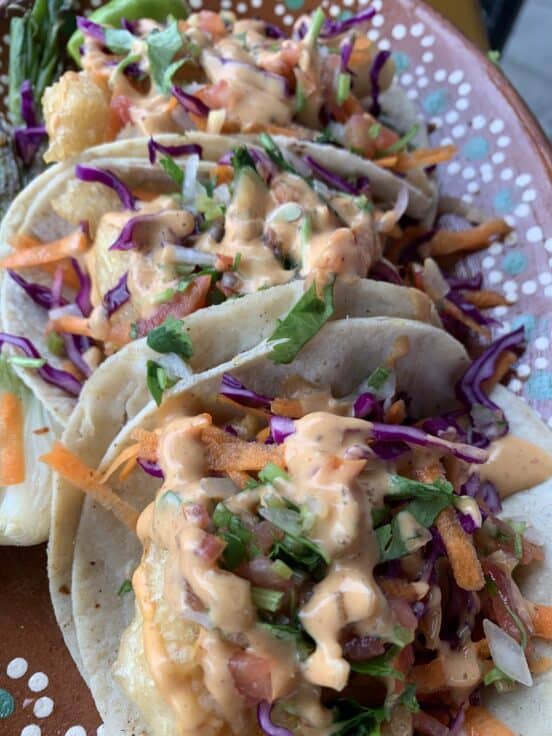
Do you have social distance and/or mask requirements where you are?
Brytta: Public transportation and bus stations require masks. The supermarket and stores in general require masks. San Jose and Jaco also require masks. Everywhere else it’s not required. There is no social distancing nor is it really needed due to the spaciousness of the jungle.
Amanda: Yes, masks are required in Puerto Vallarta and most places in Mexico. Social distancing is encouraged in most places!
Is affordable accommodation available during COVID-19?
Brytta: Yes! Right now in Costa Rica, Airbnb hosts are giving major discounts to travelers who book two weeks or more. The hotel I teach at is giving 15-25% off two weeks out of every month. Hosts are doing this because they haven’t had travelers stay since before the pandemic. They want you to come and enjoy your travels. They also need travelers to come and stay so that they can stay open.
Amanda: Yes! AirBnb’s have major discounts available right now so it is a great time to book a trip. The tourism industry has been hit so hard because of the pandemic and being in a tourist town has really shown me how we can travel and support the local economy while still keeping each other safe.
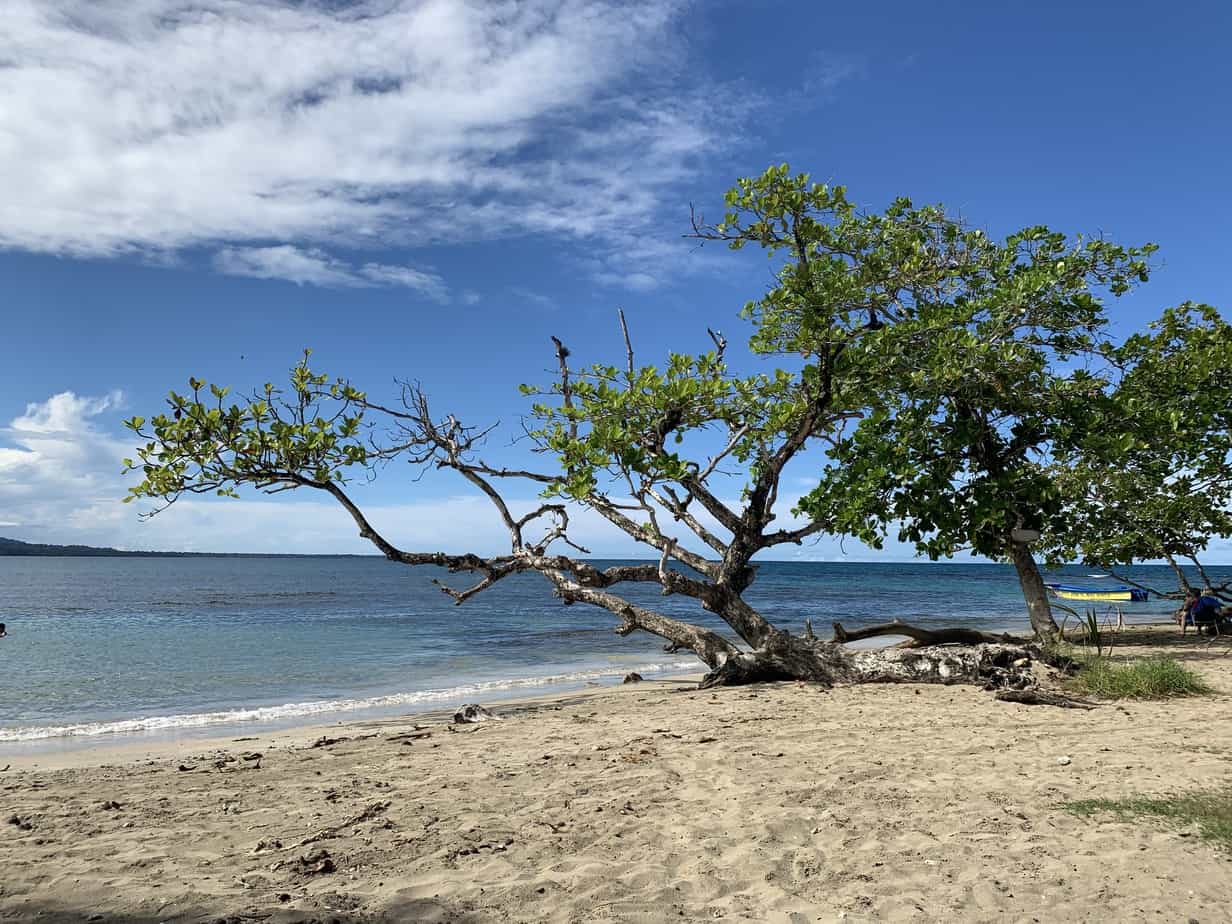
What exactly should you consider when choosing a destination, in terms of safety?
Brytta: I think that you need to ask yourself what makes you feel safe in your body and what makes you feel safe when you travel. Rather than watching the news or COVID numbers, sit with yourself and ask yourself, does traveling to this destination feel good in my gut, and is this a full-body yes or no? If it’s a yes then begin researching your destination. I choose my destination by affordability, quality of life, safety for women and people of color, and by following my heart.
Amanda: I would echo what Brytta said in that you need to choose a destination based on where you feel best. Mexico is one of the places I feel most at home in the world so when Ryan and I decided to leave Canada again, Mexico was top of our list. We did look at a few other places and the things we took into consideration were affordability, quality of life, COVID-19 restrictions (we aren’t keen to get caught in a lockdown again), proximity to Canada in case we did need to get home again, our personal comfort level, weather, wifi speed, and access to coworking and a gym. We also prefer to be in Spanish speaking countries for trips where we’ll be more living than actively traveling.
Thanks so much for reading and make sure you let us know if you have any additional questions related to your travels!

Brytta, founder of Xanadu Yoga is a world traveling yoga instructor whose mission in life is to impact the world through yoga on and off her yoga mat. Brytta has traveled to all parts of the globe teaching yoga for the past six years. Her latest adventures include being the studio manager for the largest YogaWorks studio in the United States, teaching trauma-informed yoga in refugee camps in Greece, teaching yoga to underserved communities in Cambodia, and teaching SUP Yoga at Boom Festival in Portugal. When she’s not traveling the world and teaching yoga, you can find her climbing a waterfall, interviewing folks from the yoga and music industries or reading poetry. Currently, Brytta is the Marketing Coordinator and yoga teacher at Encantada Ocean Cottages in Costa Rica. She is certified through LL Studio and Island Yoga Aruba with Rachel Brathen. To continue connecting with Brytta in Costa Rica or around the world, give her a follow @xanaduyoga. To learn more about traveling the world and teaching yoga, you can read her Travel + Yoga blog at xanaduyoga.com.
Did you enjoy this post? Save it for later! Pin it!

